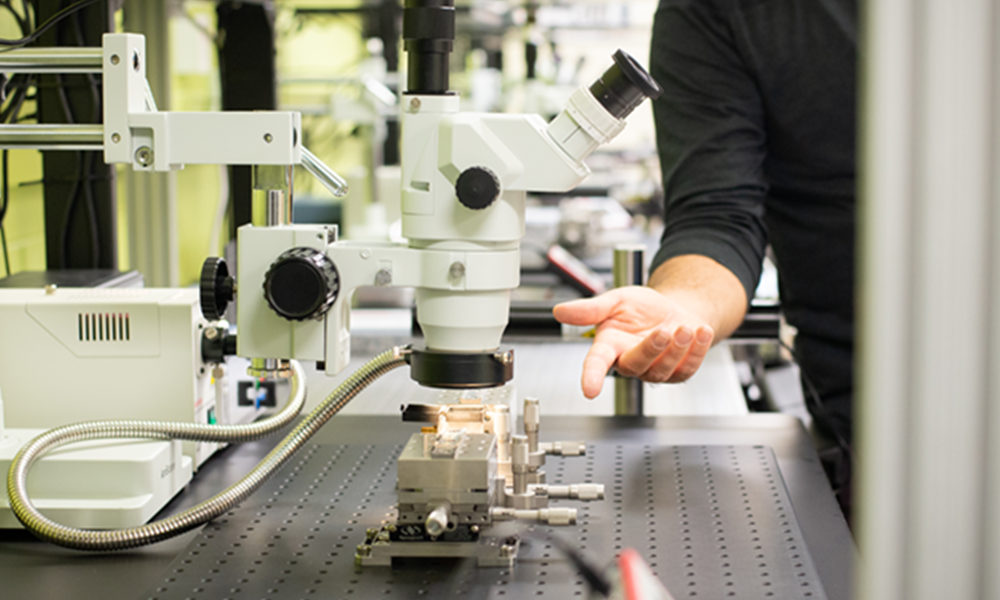The Western New England University (WNE) College of Engineering has received four grants that total $184,526 for use in research projects that span water consumption, bioreactors, transportation, and robotics. These research initiatives will benefit the undergraduate students of Western New England University by providing them with hands-on experiences that will benefit their studies and provide them with professional opportunities.
Assistant Professor of Civil and Environmental Engineering Katherine Schlef was awarded $114,276 from the National Science Foundation for her work in "Analyzing the Impact of Outdoor Water-Use Restrictions and the COVID-19 Pandemic on Water Consumption in Massachusetts."
This project will provide critical understanding of the impacts of outdoor water-use restrictions on water consumption in Massachusetts. Despite relatively abundant rainfall and regulations on water withdrawal, public water suppliers are often required to implement outdoor water-use restrictions by the regulatory authority. These restrictions are complex and the COVID-19 pandemic is yet another confounding factor. This project, the first of its kind to be implemented at a state-wide scale anywhere in the United States, will provide new insights to facilitate water management, inform regulatory action, and quantify the impact of the pandemic.
Assistant Professor of Biomedical Engineering Devina Jaiswal received a $16,250 award from MassVentures under their Acorn Innovation Grant program for her project titled "Designing and Testing of Add-on Features for Do-it-Yourself Bioreactor: A Product-Market Fit Approach" and will help her bring her technology closer to market.
Researchers are developing a customizable bioreactor (a mechanism for growing organisms) that allows for dynamic tissue culture of tissue-engineered products as alternatives to allografts and autografts (bone tissue derived from humans). The device will accommodate multiple test conditions and samples to yield statistically sound data for a variety of tissues, a critical feature not currently available in commercial bioreactors.
The device is geared for researchers in biomedical engineering and science who are designing and developing tissue-engineered products or studying disease, repair, and regeneration of soft tissues.
Assistant Professor of Civil & Environmental Engineering Myungseob (Edward) Kim received a $45,000 grant from PVTA via USDOT from his project titled "Pioneer Valley Transit Review and Improvement Planning Study (PV-TRIPS)."
For USDOT FTA's 2020 Helping Obtain Prosperity for Everyone (HOPE) Program, the PVTA proposed a Pioneer Valley Transit Review and Improvement Planning Study (PV-TRIPS) to review historical and existing transit conditions in order to inform the design of a sustainable system for future travel needs in the Pioneer Valley. WNE will specifically focus on the analysis of accessible door-to-door operations for ADA and senior customers.
Assistant Professor of Mechanical Engineering Vedang Chauhan was accepted by the NSF-sponsored Northeast Cyberteam Program for his two projects "Flexible Material Handling Using a Vision-Guided Industrial Robot" & and "Bearing Condition Monitoring Using Machine Learning." Stipends of $4,500 each will be awarded to two WNE students that were recruited to work on these research initiatives.
The objective of "Flexible Material Handling Using a Vision-Guided Industrial Robot" is to design, implement, program and evaluate a Fanuc robot with a 2D Vision Inspection system using the FANUC ROBOGUIDE software and LR Mate 200 iD/4S robot.
Robots are broadly used in modern manufacturing industries for various tasks and can even be integrated with a 2D or 3D vision inspection system to enhance the robot's capabilities to perform advanced tasks. Because manufacturers rely on FANUC automation, they need engineers who can understand and program the robots.
To accelerate project development and to minimize the cost of the initial setup of such robots, industries first program robots in the virtual systems. With virtual robots and workcell models, offline programming with software reduces risk by enabling visualization of single and multi-robot workcell layouts before actual installation. FANUC offers ROBOGUIDE software that allows users to create, program, and simulate a robotic workcell in 3-D without the physical need and expense of a prototype workcell setup.
"Bearing Condition Monitoring Using Machine Learning" will detect local defects like cracks and pits on bearing races using machine learning. As a pilot project, simulated data of bearing conditions will be generated from MATLAB Simulink models and used for developing machine learning-based predictive maintenance and condition monitoring algorithms. The trained model will be evaluated against the real bearing data and ground truth results.
Modern manufacturing facilities use highly complex and advanced machines that require continuous health monitoring systems. Bearings are widely used in rotating equipment and machines to support the load and to reduce friction. The presence of micron-sized defects on the mating surfaces of the bearing components can lead to failure over time. Bearing health can be monitored by analyzing vibration signals acquired using an accelerometer and developing a machine learning framework for feature extraction and classification of the bearing conditions. The large size defects on bearing elements can be detected/identified by time domain and frequency domain analysis of its vibration signals. However, it becomes difficult to detect local bearing defects at their initial stage either due to their smaller size or the presence of noise.
The Western New England College of Engineering is committed to preparing students to be innovative, entrepreneurial, and prepared to apply their education to solve the numerous challenges facing our global society. WNE graduates are working at the forefront of aerospace, healthcare, communications, energy, manufacturing, transportation, government, and many other fields. They are CEOs, project managers, senior engineers, and entrepreneurs. To learn more about the Western New England University College of Engineering visit the website at https://www1.wne.edu/engineering.





